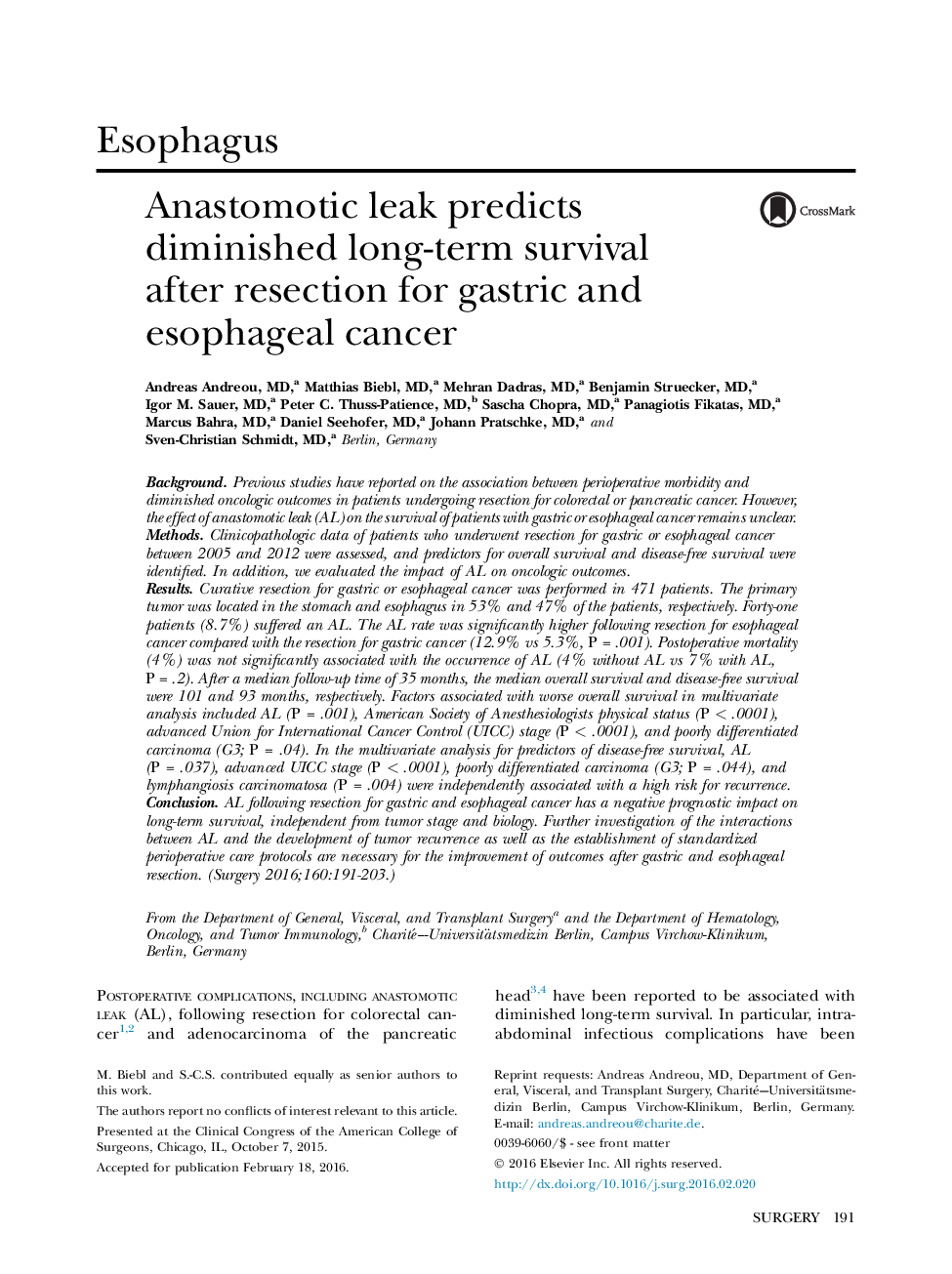| Article ID | Journal | Published Year | Pages | File Type |
|---|---|---|---|---|
| 6254798 | Surgery | 2016 | 13 Pages |
BackgroundPrevious studies have reported on the association between perioperative morbidity and diminished oncologic outcomes in patients undergoing resection for colorectal or pancreatic cancer. However, the effect of anastomotic leak (AL) on the survival of patients with gastric or esophageal cancer remains unclear.MethodsClinicopathologic data of patients who underwent resection for gastric or esophageal cancer between 2005 and 2012 were assessed, and predictors for overall survival and disease-free survival were identified. In addition, we evaluated the impact of AL on oncologic outcomes.ResultsCurative resection for gastric or esophageal cancer was performed in 471 patients. The primary tumor was located in the stomach and esophagus in 53% and 47% of the patients, respectively. Forty-one patients (8.7%) suffered an AL. The AL rate was significantly higher following resection for esophageal cancer compared with the resection for gastric cancer (12.9% vs 5.3%, PÂ =Â .001). Postoperative mortality (4%) was not significantly associated with the occurrence of AL (4% without AL vs 7% with AL, PÂ =Â .2). After a median follow-up time of 35Â months, the median overall survival and disease-free survival were 101 and 93Â months, respectively. Factors associated with worse overall survival in multivariate analysis included AL (PÂ =Â .001), American Society of Anesthesiologists physical status (PÂ <Â .0001), advanced Union for International Cancer Control (UICC) stage (PÂ <Â .0001), and poorly differentiated carcinoma (G3; PÂ =Â .04). In the multivariate analysis for predictors of disease-free survival, AL (PÂ =Â .037), advanced UICC stage (PÂ <Â .0001), poorly differentiated carcinoma (G3; PÂ =Â .044), and lymphangiosis carcinomatosa (PÂ =Â .004) were independently associated with a high risk for recurrence.ConclusionAL following resection for gastric and esophageal cancer has a negative prognostic impact on long-term survival, independent from tumor stage and biology. Further investigation of the interactions between AL and the development of tumor recurrence as well as the establishment of standardized perioperative care protocols are necessary for the improvement of outcomes after gastric and esophageal resection.
